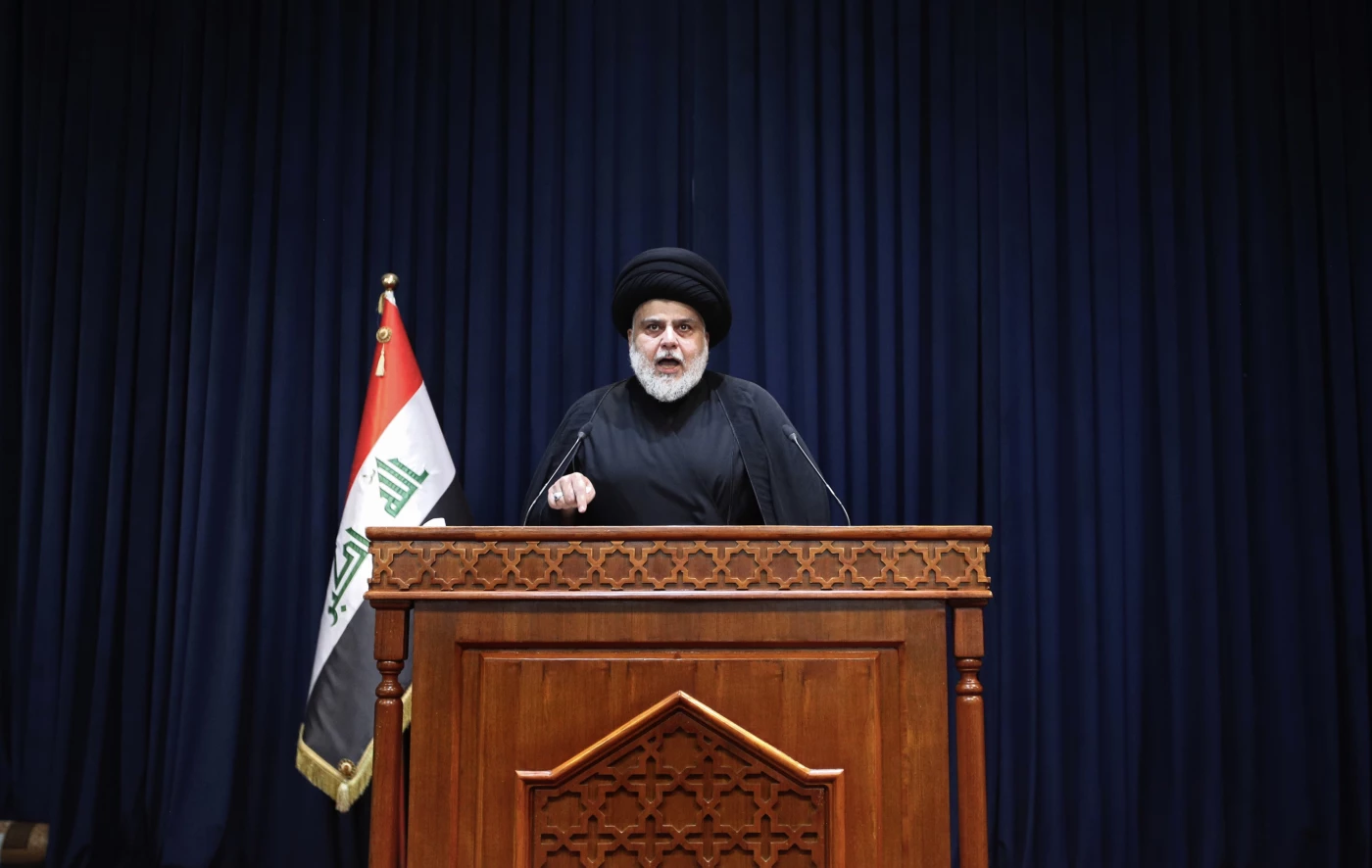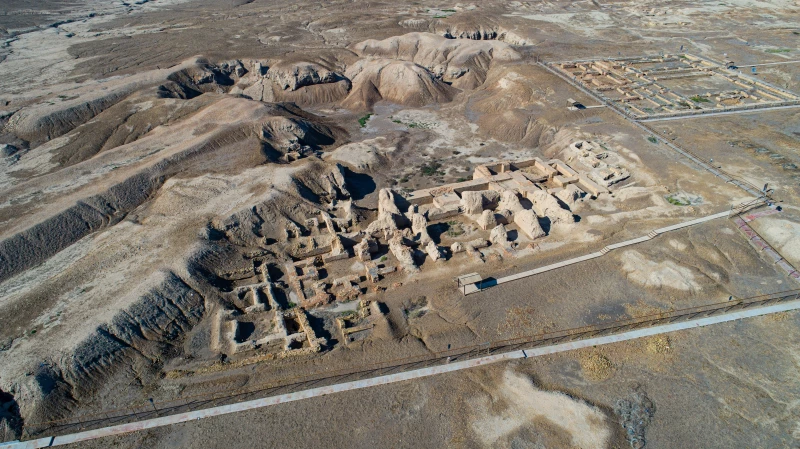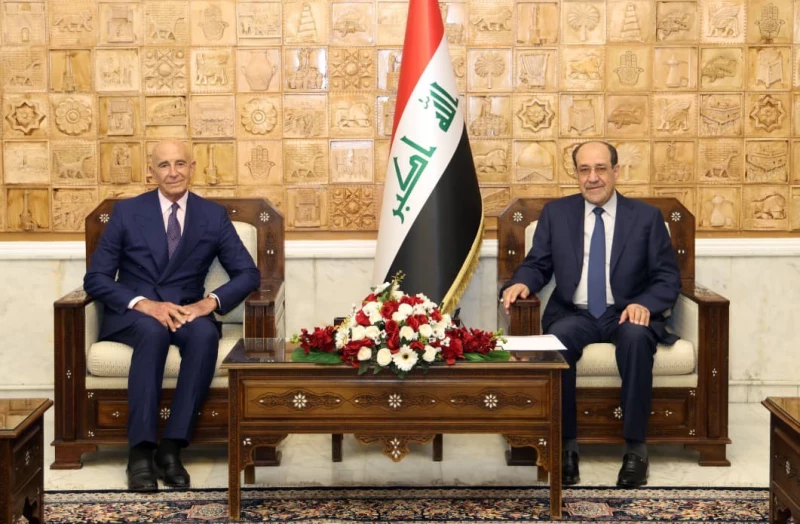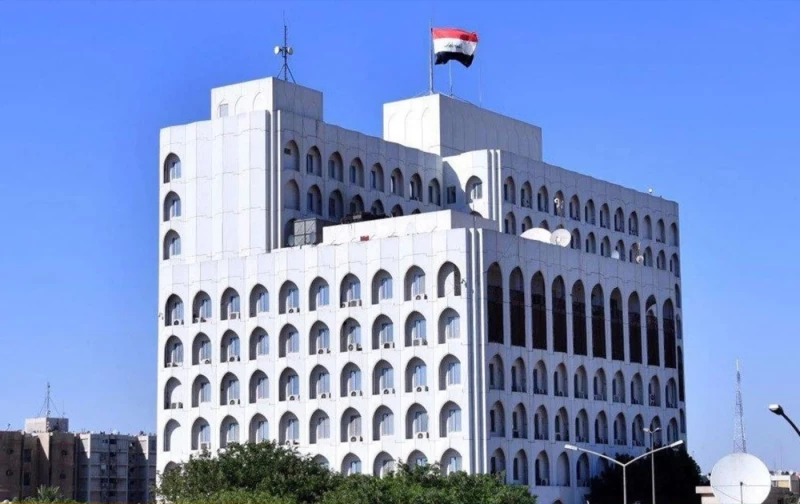DUBAI, UAE - Rumors have circulated in the political and media spaces in recent days, suggesting a possible return of Shiite leader Muqtada al-Sadr to Iraq’s political arena after a two-year hiatus, while details of the potential comeback remain unconfirmed.
Political analyst Mujashi’ al-Tamimi, a close associate Sadr’s National Shiite Movement - previously the Sadrist Movement -, told The New Region that he believes Sadr’s return is “inevitable”, but claimed that “Sadr wants his return to bring about clear changes and reforms within Iraq’s political system and processes.”
Sadr, whose movement emerged as the main victor from the 2021 Iraqi parliamentary elections after gaining 73 seats, ordered all his MPs to resign from the legislature in June 2022 after his attempts to form the next government were repeatedly blocked, mainly by the pro-Iran Shiite Coordination Framework.
In protest, Sadr’s supporters entered Baghdad’s fortified Green Zone, staging a sit-in for over a month before violent clashes broke out between them and supporters of the Coordination Framework in late August 2022, during which at least 23 people were killed and over 380 others were wounded.
Sadr announced his “definitive” retirement from politics shortly after the clashes.
“Sadr’s withdrawal from parliament was due to reasons related to the political forces’ unwillingness to carry out the real reform that the people and the religious authority want, and for this reason he left the current stage to the forces of the Coordination Framework to form a consensus government,” said Tamimi.
However, Tamimi added that Sadr’s commitment to reform now aligns closely with that of Iraq’s supreme religious authority, led by Grand Ayatollah Ali al-Sistani, who recently called for decisive reforms.
In a statement on Monday, Sistani highlighted significant challenges currently facing Iraq, urging Iraqis to learn from past experiences, prevent foreign interference, enforce the rule of law, and restrict arms to the state. His call was widely accepted by the political parties.
Though Sadr has yet to make an official announcement, Tamimi expressed confidence that “the upcoming stage will be a strong one for Sadr and his movement in the political scene,” claiming that “his absence has had a negative impact on Iraq’s political, service, and economic situation.”
Unofficial meetings signal preparations for political return
Meanwhile, an official from the National Shiite Movement’s political body disclosed Friday that the group is holding meetings to prepare for a possible return to politics.
The official, who spoke on condition of anonymity, told The New Region that the movement’s return to political action “is certain, with extensive participation anticipated in the next parliamentary elections.”
The source added that “meetings are being held unofficially within the political body, alongside discussions with the electoral machinery to prepare for the upcoming phase. These meetings are closely monitored by the movement’s leader, Muqtada al-Sadr.”



 Facebook
Facebook
 LinkedIn
LinkedIn
 Telegram
Telegram
 X
X


